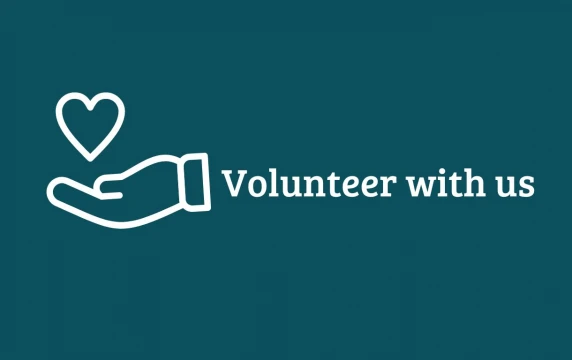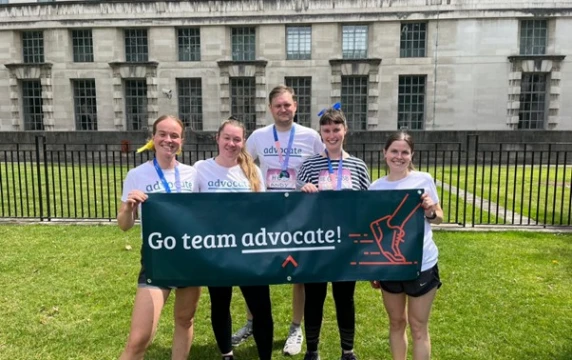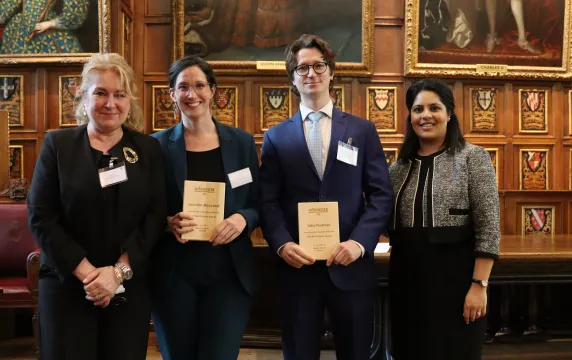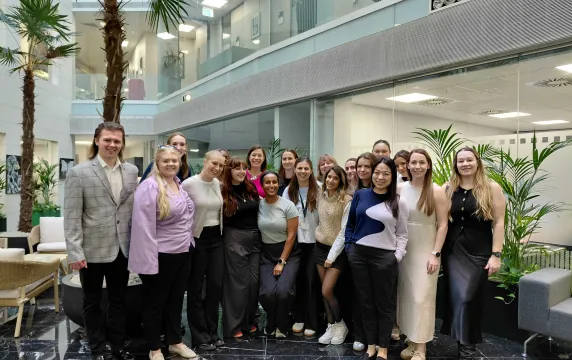Brie Stevens-Hoare QC, Gatehouse Chambers
To celebrate Volunteers' Week, we spoke to some of our fantastic Pro Bono Ambassadors about what drives them to do pro bono work. These are the barristers who not only dedicate a generous amount of time and expertise to fighting access to justice but encourage others in their chambers to do the same. We couldn't do the work we do without our volunteers - the whole Advocate team is incredibly grateful for their support.
Our ambassadors take us through their experience of pro bono throughout their career, from their very first case to their most memorable, as well as lessons they have learned and advice for any lawyers out there who are sat on the pro bono fence. Read on to see what Brie Stevens-Hoare QC has to say.
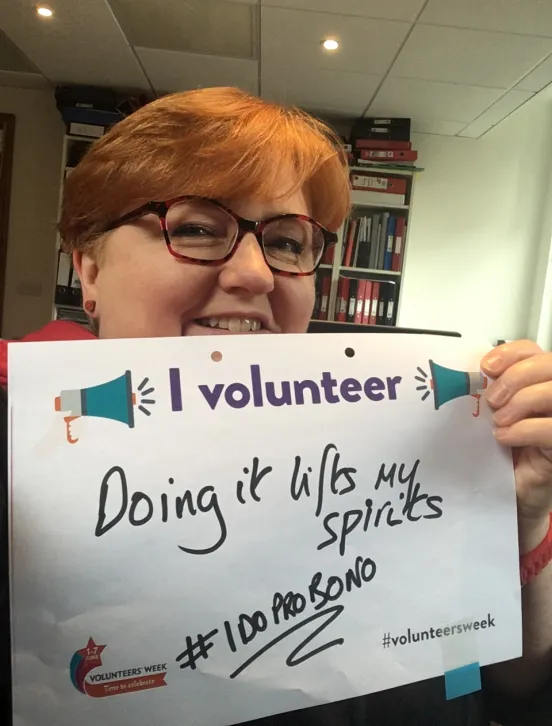
At what stage in your career did you take on your first pro bono case?
In my first year.
Why did you decide to undertake pro bono work?
Even then, I was aware some people were not able to afford the access to justice they deserved.
What was the most memorable case you worked on, and what did you do?
A case that went to the Supreme Court in December 2017, Ilott v Mitson, which went on for 7 years. The client’s mother left her estate to three charities when she passed away, and intentionally left nothing to her daughter following years of estrangement. The client made a claim on the estate under the Inheritance Act for its failure to make reasonable provision for her in light of her acute financial needs for her maintenance. The client had had legal aid for the trial and secured an award of £50,000. The charities appealed seeking to an order that client was not entitled to any award. Legal aid was no longer available.
The client was then represented pro bono through appeals in the High Court and on up to the Court of Appeal twice, on both the question of entitlement under the Act and then the amount of the award. In the Court of Appeal for the second time the client’s award was increased to £160,000 which was enough to allow her to exercise a right to buy. Eventually the case went to the Supreme Court where the charities challenged that award. Although the Supreme Court ultimately reinstated the original award of £50,000 out of the £486,000 estate, arrangements were made to allow the client to remain in the property and retain a part of the increased value. In addition, the Court of Appeal’s order that the charities pay the pro bono costs survived. The case attracted a great deal of press interest leading to several articles commenting on the case in the Tabloid Press.
What effect did pro bono work have on your career?
It had a huge effect. I get more out of it than I put in. When junior, I did cases that were bigger and more interesting than my usual case. It keeps me in touch with some of key reasons I came to the Bar in the first place, and one of my cases in my application for silk was a pro bono case.
What is the most rewarding thing about doing pro bono work?
You make a real difference in the life of a client who you inevitably get to know every well. If you can also get a pro bono costs order its "double bubble" you have given your time directly and you have raised money for charity/to fund more pro bono work.
What advice would you give to any barrister unsure about whether to start doing pro bono work?
Do it and keep doing it. Throughout my career I have aimed to generally have a pro bono case on the go and have learnt a lot by doing so. It also makes you really appreciate what your instructing solicitors do.
A quarter of the Bar of England and Wales are signed up to our panel of volunteers. Are you? To join the panel, complete the registration form here, and soon, you'll be able to say "I Do Pro Bono" too!


